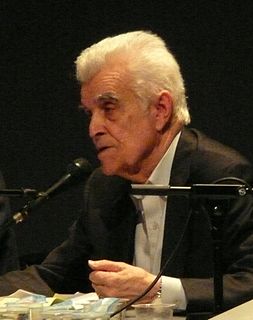A Quote by Hortense Odlum
This is the great truth life has to teach us ... that gratification of our individual desires and expression of our personal preferences without consideration for their effect upon others brings in the end nothing but ruin and devastation.
Related Quotes
We need others for our physical, emotional, and spiritual well-being. Without others we are nothing. Our sense that we are an island, an independent, self-sufficient individual, bears no relation to reality. It is closer to the truth to picture ourself as a cell in the vast body of life, distinct yet intimately bound up with all living beings. We cannot exist without others, and they in turn are affected by everything we do. The idea that it is possible to secure our own welfare while neglecting the welfare of others, or even at the expense of others, is completely unrealistic.
Every time you have a desire, in a certain sense you have a goal, something you would like to be, do, or have. Some desires are merely passing fancies, but others stay with us and go deeper. Our desires and our goals give us direction and focus. They help point us down our path of action in our life.
But all provisions that He (God) has made for the gratification of our senses…are much inferior to the provision, the wonderful provision that He has made for the gratification of our nobler powers of intelligence and reason. He has given us reason to find out the truth, and the real design and true end of our existence.
The least livable life is the one without coherence-nothing connects, nothing means anything. Stories make connections. They allow us to see our past, our present, and our future as interrelated and purposeful.... The stories we value most reassure us that life is worth the pain, that meaning is not an illusion, and that others share our experience with us.
In truth, politeness is artificial good humor, it covers the natural want of it, and ends by rendering habitual a substitute nearly equivalent to the real virtue. It is the practice of sacrificing to those whom we meet in society, all the little inconveniences and preferences which will gratify them, and deprive us of nothing worth a moment's consideration; it is the giving a pleasing and flattering turn to our expressions, which will conciliate others, and make them pleased with us as well as themselves. How cheap a price for the good will of another!
Sin is one thing but instinctive reaction or passion is another. These are our reactions: pride, anger, sexual indulgence, hate, greed, and so on. The corresponding sins are the gratification of these passions: when a man acts and brings into corporeal reality those works which were suggested to him by his desires. It is impossible to exist without desires arising, but not to give way to them is by no means impossible.
A human encounter with holiness is devastating. It refuses to allow us to be impressed with the things of the world we’ve been chasing. It refuses to allow us to remain comfortable in our sin. It refuses to allow us to remain on the throne of our lives. And it leads us to a relationship with the only One who can perfectly love us, who can forgive all our sins, and who can make us into His likeness. Our encounter with His holiness is our devastation. And our devastation is our salvation.
The first beneficiary of compassion is always oneself. When compassion, or warmheartedness, arises in us and our focus shifts away from our own narrow self-interest, it is as if we open an inner door. It reduces fear, boosts confidence and brings us inner strength. By reducing distrust, it opens us to others and brings us a sense of connection to others, and sense of purpose and meaning in life.
I look at the effect that an individual's fame has on their family, for example, and the limitations that places upon your life to an extent - of course, it brings marvelous things too, but it brings them mainly to the individual. The people around the famous person often pay a price without reaping many of the rewards.
Buddha says this is how one should be - no desire, because all desires are futile. They are about the future; life is in the present. All desires distract you from the present, all desires distract you from life, all desires are destructive of life, all desires are postponements of life. Life is now and the desire takes you away, farther and farther away from now. And when we see that our life is misery we go on throwing the responsibility on others, and nobody is responsible except us.
It's easy for us to feel separate from other people and from other forms of life, especially if we don't have a reliable connection to our own inner world. Without insight into our internal cycles of pleasure and pain, desires and fears, there is a strong sense of being removed, apart or disconnected. When we do have an understanding of our inner lives, it provides an intuitive opening, even without words, to the ties that exist between ourselves and others.
































